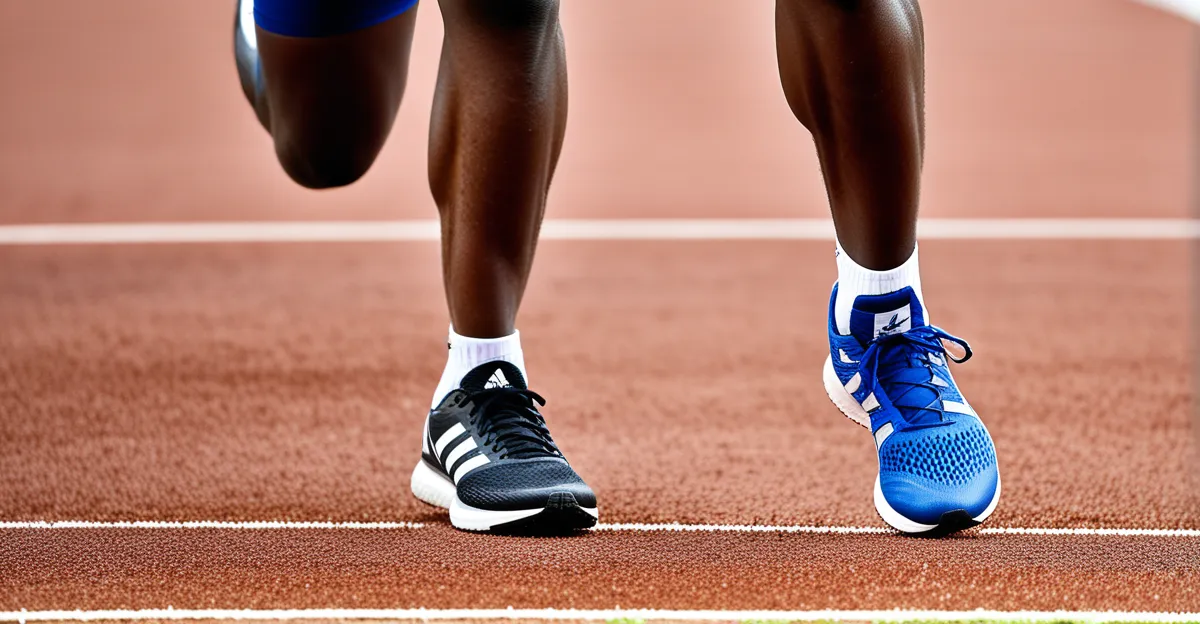Advanced Training Methodologies for International Competition
In preparing athletes for international competition, elite athlete training demands precision and adaptability. Central to success is integrating targeted high-performance training regimes that align with global standards. These regimes focus on maximizing physiological and technical capabilities through periodized cycles engineered to deliver peak performance precisely when it matters most, such as major championships or the Olympics.
Adapting training cycles involves manipulating volume, intensity, and recovery to ensure athletes reach their highest potential at key events. For instance, tapering is strategically implemented to reduce fatigue without compromising fitness. This fine balance is crucial in maintaining an athlete’s sports performance longevity throughout the often grueling international calendar.
Topic to read : How Can UK Sports Foster Young Talents to Achieve International Success?
UK-specific training programs play a pivotal role by combining proven methodologies with the nation’s unique coaching expertise. They emphasize individualized plans that cater to each athlete’s strengths and weaknesses, ensuring tailored progression. Coaches within the UK’s system utilize extensive experience and cutting-edge science to support athletes, helping them navigate the increasing competitiveness on the world stage. This bespoke approach contributes significantly to the upward trajectory of UK athletes in global rankings.
In sum, the fusion of globally recognized training practices with UK-focused customization forms the backbone of advanced training methodologies, ultimately driving UK athletes to excel in international competition.
Have you seen this : What is the influence of UK sports media on public perception?
Harnessing Sports Science and Technology
Advancements in sports science and technology have become indispensable in refining sports performance, especially within elite athlete training frameworks. The integration of biomechanical analysis, data analytics, and wearable devices allows coaches and athletes to gain precise insights into movement patterns, workload, and physiological responses. These tools enable real-time feedback and continuous optimization of training programs.
UK training programs have capitalized on this by embedding cutting-edge technologies into their regimes. For example, athlete monitoring systems track variables such as heart rate variability, sleep quality, and fatigue levels, which inform tailored interventions to prevent overtraining and enhance recovery. This approach ensures that training intensity aligns with each athlete’s readiness, improving consistency and reducing injury risk.
Further, UK sports science research institutes contribute significantly to innovation. Collaborations between research centers and sports organizations have produced bespoke solutions like biomechanical sensors that detect inefficiencies in technique, leading to incremental yet critical improvements in performance. These technologies also support return-to-play protocols following injury, ensuring a safe and effective reintegration into elite competition.
Incorporating technology in training not only modernizes elite athlete training but also fosters an evidence-based culture within UK training programs, driving sustained international success.
Nutrition and Recovery Strategies for Elite Athletes
Optimizing athlete nutrition is critical within elite athlete training to meet the unique demands of international competition. UK training programs emphasize personalized dietary plans that accommodate extensive travel schedules and varying competition environments. These tailored nutrition protocols ensure athletes maintain energy availability, support immune function, and promote muscle repair, all crucial for sustaining peak sports performance throughout long tournaments.
Recovery strategies are equally prioritized, combining evidence-based practices such as sleep optimization, hydration management, and active recovery techniques. UK sports dietitians play a pivotal role by collaborating closely with coaches and medical teams to design nutrition interventions that facilitate rapid recovery and reduce injury risk. For example, targeted macronutrient timing and supplementation protocols are tailored to individual metabolic responses, enhancing recovery quality after intense training phases.
Incorporating these comprehensive nutrition and recovery frameworks within UK training programs delivers multifaceted benefits. Athletes experience improved resilience against fatigue, quicker restoration of physiological function, and ultimately, better readiness for successive bouts of high-stakes competition. This integrated approach serves as a foundation for sustaining elite performance and longevity on the international stage.
Psychological Preparation and Mental Resilience
Building mental preparation and resilience training is essential for elite athlete training focused on international competition. The psychological demands of performing on a global stage are intense; athletes must develop unwavering focus and emotional control under pressure. UK training programs integrate evidence-based strategies crafted by expert UK sports psychologists to enhance mental toughness.
One core technique is cognitive behavioural training, which helps athletes manage anxiety and maintain positive self-talk during critical moments. This approach improves sports performance by fostering a mindset that views setbacks as opportunities for growth rather than failure. Visualization exercises are also prevalent, allowing athletes to mentally rehearse competition scenarios to reduce nervousness and increase confidence.
Resilience training within UK programs includes stress inoculation, where athletes gradually face and adapt to increasing stress levels in controlled environments. This preparation mimics the unpredictability of international events, enhancing adaptability when faced with unforeseen challenges such as hostile crowds or unexpected rule changes.
UK sports psychologists collaborate closely with coaches to personalise mental conditioning plans that complement physical training, ensuring athletes are holistically prepared. Incorporating mindfulness practices further supports focus, helping athletes stay present and reduce distraction during competitions.
Collectively, these psychological preparation methods reinforce the foundation of elite athlete training in the UK, enabling athletes to perform consistently and recover mentally after setbacks on the international stage.
Governmental and Institutional Support for UK Athletes
Governmental and institutional backing forms a cornerstone of elite athlete training and sports performance in the UK. Organisations such as UK Sport provide comprehensive funding, which supports athletes across various disciplines aiming for success in international competition. This funding covers essential aspects: from coaching salaries and sports science services to equipment acquisition and competition travel expenses.
In addition to financial investment, UK athletes benefit from access to world-class facilities and cutting-edge training environments. These venues often host international training camps where athletes can simulate competition conditions. The ability to train in such elite settings improves preparedness and sharpens performance under pressure.
Mentorship programs are integral to UK training programs, offering athletes guidance throughout their career progression. Experienced Olympians and world champions share insights on navigating the rigours of international stages, from handling media scrutiny to overcoming setbacks. This institutional infrastructure not only nurtures athletic talent but also fosters psychological resilience and strategic acumen.
Together, these support mechanisms embedded within UK training programs create a robust ecosystem that elevates athletes’ capacity to excel globally. By combining financial resources, top-tier facilities, and expert mentorship, UK athletes gain a significant competitive edge in international sports performance arenas.
Overcoming International Competition Challenges
Navigating the complexities of international sports challenges requires deliberate adaptation strategies embedded within elite athlete training and UK training programs. One prominent hurdle is managing jet lag, which disrupts circadian rhythms and impairs sports performance. UK athletes employ scientifically guided protocols—such as controlled exposure to light and strategic sleep scheduling—to recalibrate their biological clocks swiftly upon arrival in different time zones.
Furthermore, climate adaptation plays a critical role. Competing in diverse environmental conditions, from humid tropical venues to high-altitude locations, demands tailored acclimatization periods integrated into training cycles. UK programs incorporate simulated environments and phased exposure, enabling athletes to maintain optimal physiological function under varying temperatures and humidity levels without sacrificing training intensity.
Culture shock also impacts mental and physical readiness. UK athletes are prepared through pre-competition briefings that highlight local customs, dietary considerations, and logistical challenges. This cultural acclimatization reduces anxiety and supports focus, a vital aspect of maintaining peak sports performance on international stages.
Variability in competition formats and officiating standards presents additional challenges. UK training programs emphasize adaptability by simulating different rule interpretations and competition scenarios during practice. This prepares athletes to adjust tactics swiftly, preserving competitive edge despite unfamiliar or evolving regulations.
Drawing from direct athlete experiences, UK training integrates post-competition debriefs that analyze encountered obstacles and refine subsequent strategies. This cyclical learning enhances resilience and fosters continuous improvement, ensuring that each international appearance sharpens the athlete’s capacity to overcome complex challenges inherent to global competition.
Case Studies: Achievements of UK Athletes on the World Stage
UK athletes have consistently demonstrated exceptional sports performance in international arenas through elite athlete training that blends rigorous discipline, innovation, and UK-specific expertise. Notable examples include Olympic champions who have leveraged comprehensive UK training programs to achieve peak form at critical moments.
One such case is the success of UK track cyclists at recent Olympics and World Championships. Their elite athlete training incorporated advanced periodization, precise biomechanics analysis, and mental resilience coaching. These factors combined facilitated not only physical readiness but also tactical adaptability, resulting in multiple gold medals and world records. This performance excellence underscores how integrating cutting-edge training with expert coaching elevates UK athletes on the world stage.
Furthermore, UK swimmers have shown remarkable progression by adapting their training cycles to align with major international events, supported by tailored UK training programs that emphasize recovery and nutrition. These swimmers’ ability to maintain consistent top-tier performance exemplifies the effectiveness of UK coaching philosophies that prioritize individualized planning and data-driven adjustments.
Lessons from these success stories illuminate that achieving podium finishes requires multifaceted approaches, combining physiological, psychological, and technical elements. The sustained international success of UK athletes validates the robust infrastructure and expertise embedded within UK training systems, highlighting the continued potential for future global achievements.








